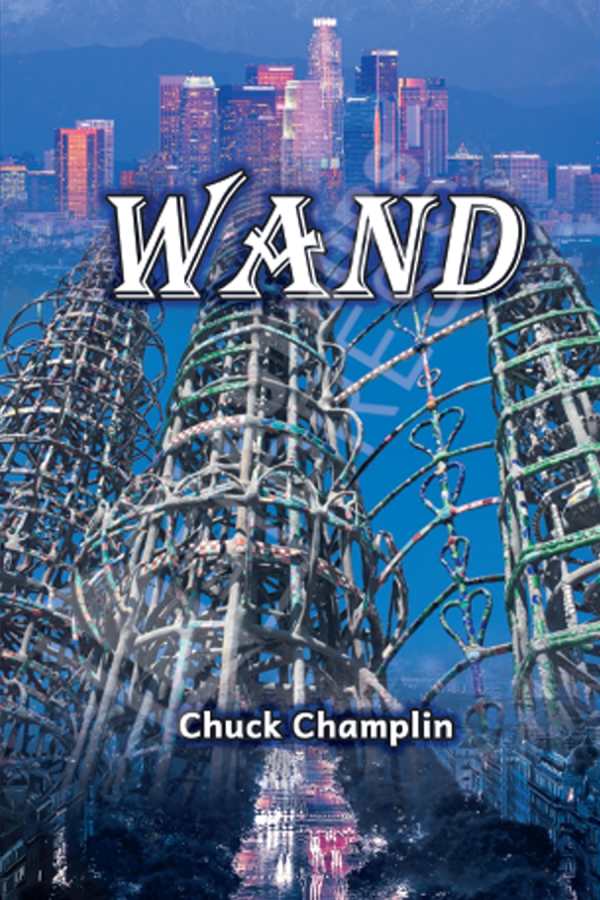Wand
The absurdist novel Wand takes on serious issues via the exploits of a daring artist.
An artist works to make the world a better place in Chuck Champlin’s raucous novel Wand.
In the 1980s in LA, Chris is a cartoonist who gets by on fraudulent disability benefits. When he’s offered mysterious money with which to save the planet, his first purchase is a bag of pens that look like magic wands. He gives them to John, a homeless man; Ivan, an artist; and Petra, his agent. The four work to connect Watts residents to the residents of a UCLA neighborhood via video. A television team, led by Janda, contributes new ideas to the footage. But just when Chris begins to make progress, his funding is pulled and his benefits are threatened; then Janda loses her job.
Moving from the far-out offer and working toward a grassroots endeavor to improve the world, this story is concerned most with communities in peril. They face poverty, impending environmental disasters, and Soviet threats. As Chris arranges encounters between rich and poor people, these issues are amplified. But his over-the-top encounters with executives, artists, and activists are also exaggerated for the sake of humor, minimizing the real challenges that people face. The plot devolves into slapstick snafus; another unrealistic financial offer rushes in to save the situation, but it requires a quick shift from missteps and mistakes into a sober entrepreneurial enterprise, and the change beggars belief.
Chris, who at first seems conniving, is revealed to be a cynical trickster who never fully trusted his benefactor’s tricky offer. He takes proactive risks to become an artist; his approach to saving the world is equally driven by spontaneity and without plan. More transformed by Chris’s work is John, who moves from being homeless and an alcoholic to interviewing for jobs. His success story is surprising, and is used to suggest that Chris has good traits, too.
Hints of romance arise as Chris falls for Janda, to whom he eventually confesses a family secret. Their candid exchanges lead to personal promises that are among the book’s more sincere developments. However, people’s conversations trend bombastic otherwise, and many among the cast seem less than wholly credible because of this.
The prose itself has a stream-of-consciousness style that matches Chis’s grandiose goals, in which “entrepreneurial thinking from a community perspective builds its own momentum.” Cinematic interludes, as with visions of the Watts Towers and of the community gathering over video, are used to punctuate the story, but the technique is cartoonish. Though this is a book that works toward an exuberant final act, it falls short of its inspirational goals.
Set during the excess of the 1980s, the absurdist novel Wand takes on serious issues via the exploits of a daring artist.
Reviewed by
Mari Carlson
Disclosure: This article is not an endorsement, but a review. The publisher of this book provided free copies of the book and paid a small fee to have their book reviewed by a professional reviewer. Foreword Reviews and Clarion Reviews make no guarantee that the publisher will receive a positive review. Foreword Magazine, Inc. is disclosing this in accordance with the Federal Trade Commission’s 16 CFR, Part 255.

